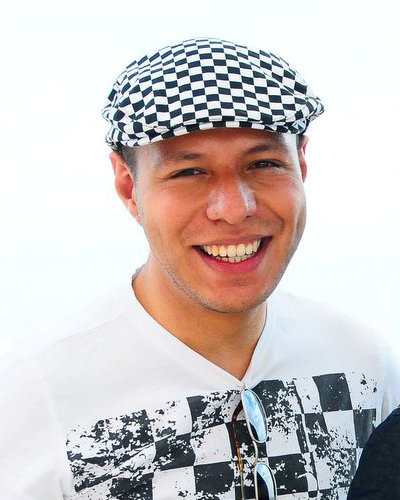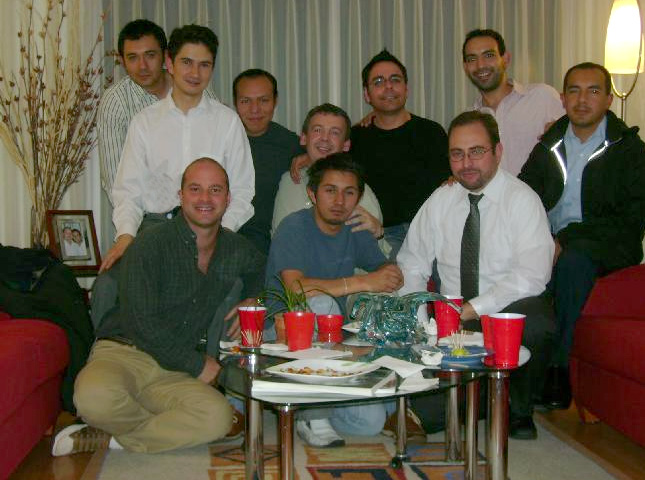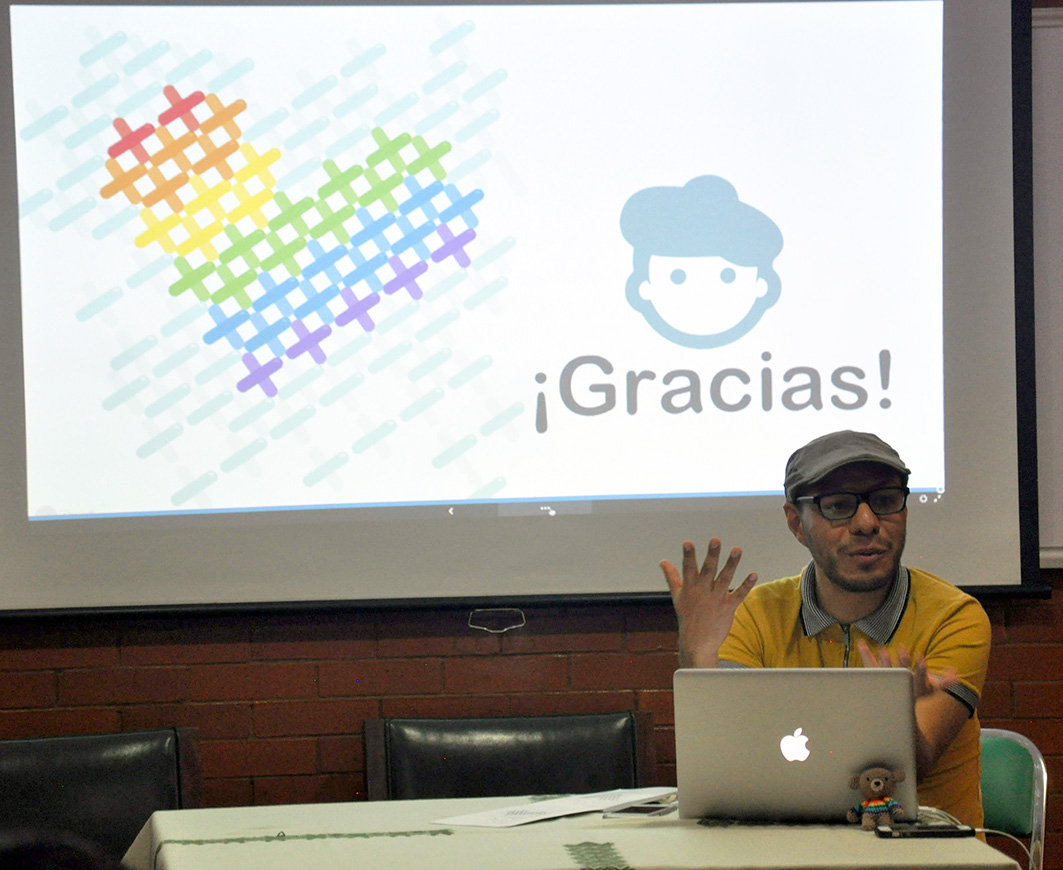
Antonio Ortiz
Biography
Antonio Ortiz, co-founder and co-chair of the Mexico Network of Rainbow Catholics (REDCAM), was born in August 1978 in Mexico City in a traditional Catholic family. He graduated from the Autonomous Metropolitan University (UAM) with a BA in Graphic Communication Design.
Since he was a child he was involved in pastoral work in groups and parish communities as a catechist, youth group coordinator and missionary in communities in Tabasco, Mexico. From 2001 to 2003, he was coordinator of a youth ministry in his vicarage, where he accompanied the youth groups, developed spiritual retreats and workshops for youth leaders, and was editor of the Bimonthly Bulletin "Decídete" ("Go for it").
In 2005, he participated in the Diploma in Spirituality and Youth with the Ignatian Commission on Youth Ministry. This Diploma closed with the experience of one-week Spiritual Exercises, a moment that undoubtedly marked his life, since in this process he recognized, reconciled and embraced his sexual identity, since for years he had fought against himself because he thought that his attraction for people of the same sex was something abnormal and frowned upon in the eyes of God (teachings of traditional Catholic culture). So he began a process of accompaniment with the Jesuits to live his sexuality without fear and in a healthy way. At the same time, he participated as part of the coordinating and working team for two years with the Youth Ministry Commission of the Jesuits.

In 2007, he joined the first generation of "Efetá", a small gay Catholic prayer group that had been formed in Mexico City made up of former seminarians and former youth group coordinators who were looking for a place to live their Catholic faith without feeling excluded. This space served to form a small community through which members accompanied each other to live their spirituality in a free and hopeful way. In 2008, this small community had a meeting with James Alison, a priest and theologian. After sharing with them, Alison urged them not to be a fearful community but to open the community experience to other guys who, just like them, experienced similar processes and were in search of spaces like that. For people who could not wait for the change to come from the religious authorities but that wanted a sign of hope. Alison insisted that we start “building a grassroots Church” and that each member was responsible for bringing about this change. These words went deep in Antonio; he began creating strategies to bring more people closer to the experience of the Efetá community.
Several attempts were made to achieve this goal, some small retreats, invitations to acquaintances, even for a couple of months the community stopped meeting due to lack of attendees. However, Antonio believed that it was important that others had the chance to experience the God's embrace and acceptance as he had felt them, so he called a meeting on the pretext that the end of the year was approaching to return to live together. To those who attended he proposed they resume activities as a community which would meet once a month to share experiences and topics of interest. And if each one promised to look for new people to live the experience, the community would be reactivated. At the beginning in this new stage the community was made up of 12 men, but over time the number grew significantly.
Among the activities promoted and coordinated in the community of Efetá are: monthly sessions with topics of interest; an annual weekend retreat with up to 60 men; meetings of common interest; accompaniment and follow-up of the persons who approached the community; participation in the Pride March; as well as work with priests and religious who began to be interested in supporting and spreading the work of the community.
In 2015, a Jesuit parish approached Efetá to celebrate a Mass for Inclusion. Antonio initially helped coordinate this, having members of Efetá visibly participating in activities of the choir, liturgy and during the homily. That same year he participated as a speaker at the Autonomous Technological Institute of Mexico (ITAM) in a Homosexuality and Religion Conference. In 2016, he participated in the panel of a dialogue table during the Forum on religions in favor of equal marriage developed in the Memory and Tolerance Museum in Mexico City.
In 2017, Antonio was approached by the Latin American Committee of the Global Network of Rainbow Catholics (GNRC), to represent Mexico at their second assembly held in Dachau, Germany. Motivated by this meeting, he spoke with James Alison and Carlos Navarro (founder of the Efetá community) to share with them the idea of replicating the meeting in Mexico but at the national level. They supported the idea. Thus, at the start of 2018 Antonio began to summon acquaintances from other Mexican cities of which he had already had some contact or knowledge before, and invited them to participate in a national meeting. Several accepted and agreed to work with Antonio on a project called the First National Meeting of Rainbow Catholic Leaders. Antonio was responsible for the coordination and logistics of this event that took place in October 2018, with the participation of almost 60 representatives from more than 10 cities in Mexico and representation of three foreign groups, as well as speakers such as James Alison, Carmen Margarita Sánchez, Conrado Zepeda sj, Marilú Rojas and the participation of the Bishop of Saltillo Raúl Vera. At the end of this event, a Commitment Letter was signed with a representative of each community that initiated the project called Rainbow Catholic Network Mexico (REDCAM). The goal is to bring together all LGBTI+ Catholic groups in Mexico so as to achieve full religious and social inclusion via a renewed Roman Catholic Church.

Antonio is currently participating in the preparations for a Second National Convention of REDCAM that will be held in Guadalajara, Mexico. He is also working in an accompaniment workshop for LGBTI people, as well as preparing for his marriage with Alberto, whom he met more three years in the community of Efetá.
(This biographical profile written by Antonio Ortiz.)
Biography Date: September 2019
Tags
Activist (religious institutions) | Catholic (Roman) | Mexico City | Mexico | Global Network of Rainbow Catholics | Alison, James | Efetá
Citation
“Antonio Ortiz | Profile”, LGBTQ Religious Archives Network, accessed April 26, 2024, https://lgbtqreligiousarchives.org/profiles/antonio-ortiz.
Remembrances